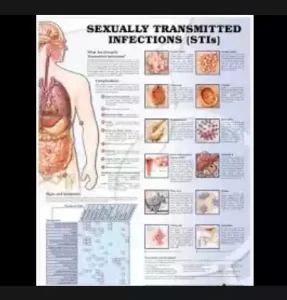Signs That Show You Have Sêxually Transmitted Diseases

S£xually transmitted diseases (STDs), also known as s£xually transmitted infections (STIs), are a common concern for s£xually active individuals. While some STDs may not show any symptoms , others can cause noticeable signs . It is important to be aware of these signs and to get tested if you suspect that you may have an STD. Here are six signs that may indicate you have an STD:
1. Painful urination :
Burning or discomfort during urination can be a sign of a urinary tract infection (UTI), which is a common complication of certain STDs, such as chlamydia and gonorrhea.
2. Unusual discharge:
Discharge from the genitals that is different from what is normal for you, such as a change in color, consistency, or odor, can be a sign of an STD. This discharge is caused by the presence of bacteria or viruses in the genitals.
3. Sores or warts:
STDs such as syphilis, herpes, and human papillomavirus (HPV) can cause sores, warts, or other physical abnormalities to appear on or around the genitals.
4. Itching or burning sensation:
Itching, burning, or discomfort in the genitals can be a sign of an STD, particularly those caused by viral infections, such as herpes and HPV.
5. Rashes or sores in the mouth :
STDs such as syphilis and herpes can cause rashes or sores in the mouth. This is because these viruses can be transmitted through oral ***.
6. Fatigue or fever:
Some STDs can cause general symptoms such as fatigue, fever, or a general feeling of malaise. These symptoms are often caused by the body’s immune response to the infection.
It is important to note that these signs can also be caused by other conditions. Therefore, it is important to see a doctor and get tested if you suspect you have an STD. Early diagnosis and treatment can help prevent the spread of the infection and can also help prevent complications.
S£xually transmitted diseases can be silent, but it is important to be aware of the signs, and to get tested if you suspect that you may have an STD. Remember that early diagnosis and treatment can help prevent the spread of the infection and can also help prevent complications.


